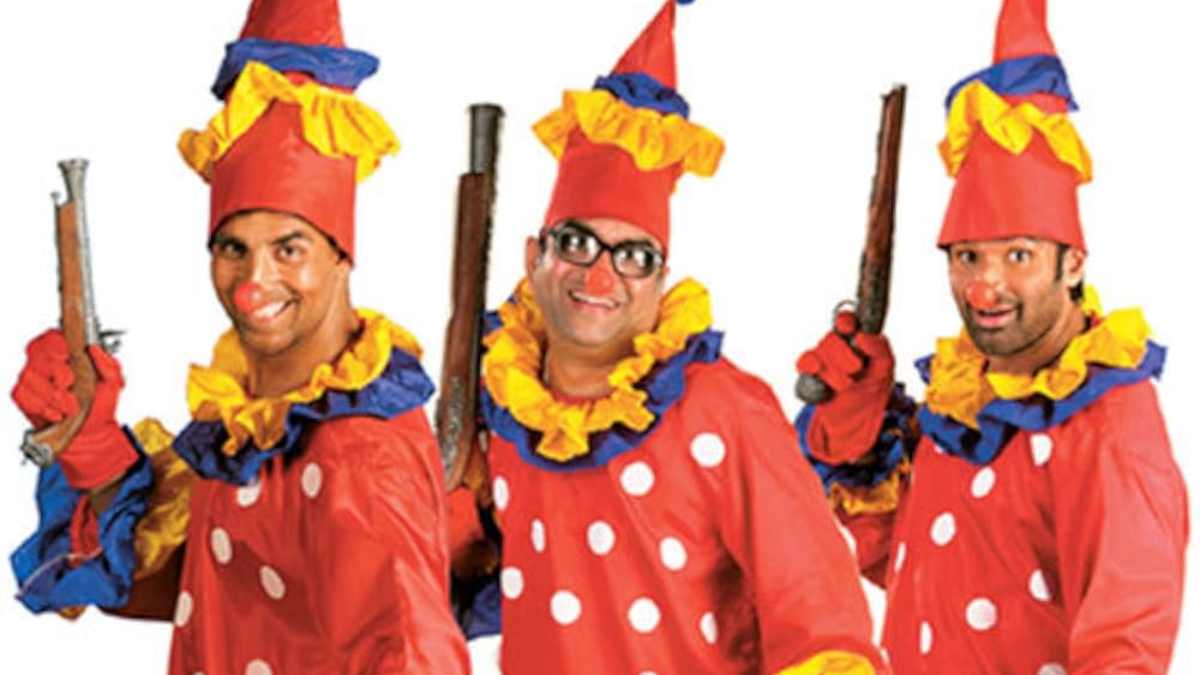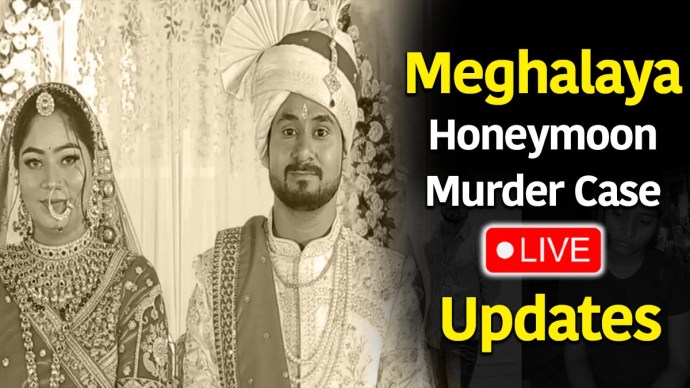Phir Hera Pheri released six years after the cult comedy Hera Pheri, did what the forthcoming part of the franchise couldn’t: it brought Paresh Rawal and Akshay Kumar together. In case anyone had forgotten the first part, Phir Hera Pheri serves up constant and whopping reminders of what once was.
To writer-director Neeraj Vora’s credit, he succeeds in establishing a sense of continuity between the first part and the new edition of the Hera Pheri series (we presume it’s a series because the film ends on an open note). The three protagonists Akshay Kumar, Suniel Shetty and Paresh Rawal are still bumbling through what looks like a labyrinth of mind-boggling zigs and zags. Their bickering is still school-boyish but noisily entertaining.
The plot tends to get into comic curves from which it seems impossible to retrieve it. But then there’s always the next gag to giggle over. Vora handles the characters with amusing aplomb. The trio of main players shuffle and juggle through what looks like a spiral of absurdities contrived to spotlight middle-class avarice.
Akshay Kumar is the key to the comedy’s effectuality. He hops, skips and jumps through the absurd mime games with unbridled gusto, dropping all inhibitions before the camera. Paresh Rawal is again in comic form. He always ends up adding that extra sparkle to almost every scene. Suniel Shetty is a quiet and responsive foil to his co-stars.
The three original Hera Pheri players are this time supported by an avalanche of eccentric, overwrought characters from the fringes who enter and exit with an amazing lack of grace. Often the canvas resembles the waiting room for a crowded railway station. The actors get into the swing of it with sweaty enthusiasm. Johnny Lever keeps his mood remarkably sombre. Too bad, audiences misconstrue his sobriety for satire.
Sharad Saxena and Bhojpuri superstar Ravi Kishan, as a couple of stammering gangsters, swing the film’s mood from the cinema of Indra Kumar to Priyadarshan, with dollops of David Dhawan thrown in for good measure.
And then there’s Bipasha Basu playing a con girl, a bar-girl dancer, a victim of fate and what have you.
Does it all add up? Yes and no. The film has a certain rise-and-shine rhythm. But it fails to generate enough interest in the characters we already know. As is typical of all Hindi comedies, the canvas is cluttered with corny characters who come and go at the narration’s well. However, if positivity is a predominant instinct in any comedy, then Phir Hera Pheri scores decent marks for remaining on the right side of the line of decorum.
Known for his crude dialogues, writer-director Neeraj Vora keeps this film remarkably free of vulgarity. But if you think you can laugh incessantly at the goings-on just because Akshay, Paresh and Suniel make a terrific team, then you’re wrong. The climax in a circus has the entire cast of heroes, villains, henchmen, con men, damsels-in-distress, plus a kidnapped little girl and a gorilla, running helter-skelter.
Maybe the sequel bites more than it can chew. But the comic romp has its biting moments.
Remarkably, Neeraj Vora succeeded in taking Priyadarshan’s vision forward. Producer Firoz Nadiadwala, who had been looking after the ailing Neeraj Vora for over a year, lost his “brother and friend” on December 14, 2017.
Vora, the man who made everyone laugh both on-and-off the screen, came into his own as the writer of Ram Gopal Varma’s Rangeela and Daud and also made a big impact playing comic roles in films like Akele Hum Akele Tum, Daud, Satya and Welcome Back, besides directing Phir Hera Pheri.
He died at the age of 54. For one year, Nadiadwala had been looking after all the medical expenses of Vora, who was comatose. Vora occupied a special room in Nadiadwala’s bungalow where the ailing writer-director was attended to by a fleet of medical experts, nurses, dieticians and well-wishers.
Reluctant to talk about his contribution to Neeraj Vora’s healthcare, Nadiadwala said:
“It was one year on October 19 since I got Neeraj to my home in Mumbai from AIIMS in Delhi where the doctors had declared he would be dead in a few hours. Quite frankly, I don’t know what powers made me do what I did. I couldn’t leave him to die. He had nobody to look after him. Neeraj did have a brother. But he was financially incapable of shouldering the responsibility. I had known Neeraj for 12 years. We have worked together in several films and we have shared a close bond. How could I leave him there to die? How would I have lived with myself if I had been so callous? The doctors at AIIMS had given up on him. I don’t know what got into me. I immediately hired an air ambulance to bring Neeraj from Delhi to Mumbai. I have to confess my heart was in my mouth. If Neeraj had passed away during that journey from Delhi to Mumbai, or even after landing, I would have been in serious legal and moral trouble. Luckily, God was on my side. He willed that Neeraj lives and I will be the tool to save his life. I sincerely believe we are all instruments of God brought on earth to do His will. I had set aside a room in my house for him. That was his home for the past one year. The room has pictures of his parents. His father, a classical musician, used to play Veena. We had that music playing in his room. We had Hanuman Chalisa recited for him… All that was familiar to Neeraj was there for him. Plus, there were four attendants — two each for the day and night shifts — to look after him round the clock, a dietician, neurosurgeons, a cook who lives close by and cooks all the special food that Neeraj had to be fed through his stomach. Under all this care, Neeraj was slowly recovering. But God’s will was otherwise.”
Also Read: Revisiting Sushant Singh Rajput & Dinesh Vijan’s ‘Raabta’ As It Clocks 8 Years











